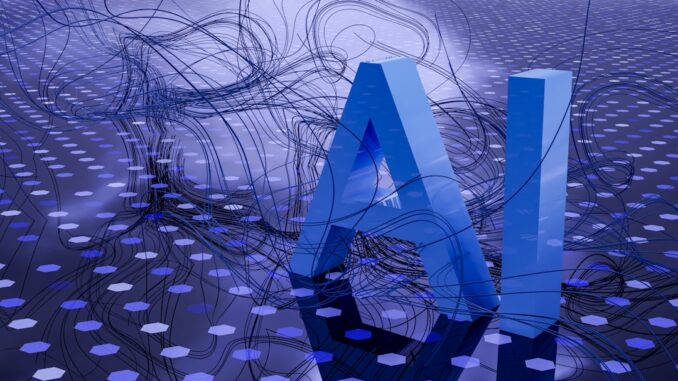
Summary
This article explores the transformative potential of artificial intelligence (AI) in healthcare, from diagnostics and treatment to drug discovery and personalized medicine. It discusses the benefits, challenges, and future implications of AI integration in the healthcare industry. AI’s growing role promises to improve patient outcomes, enhance efficiency, and revolutionize the delivery of healthcare worldwide. As of today’s date, February 15, 2025, this information is current but subject to change with ongoing advancements in the field.
Main Story
AI’s making serious waves, and healthcare? Well, that’s shaping up to be one of its most exciting proving grounds. I mean, think about it: faster diagnoses, drug discovery kicking into high gear, and treatments that are actually tailored to you. It’s a huge deal. Let’s dive into where AI’s at now in medicine, and where it’s headed, including the potential impact on patient outcomes, efficiency gains, and how it tackles those global health challenges.
AI: The Sherlock Holmes of Diagnostics
AI’s killer app, right now, is analyzing mountains of data. Medical images, for example. X-rays, CT scans, MRIs… AI can sift through those like nobody’s business. And it spots stuff we humans might miss. Subtle anomalies? Gone! That means earlier, more accurate diagnoses for things like cancer, heart disease, you name it. It’s not just images either. AI can chew through your entire medical history, analyze symptoms, and even factor in your genetics to give you a personalized risk assessment. What if you could actually see what’s coming, and take steps to prevent it? I think thats incredible.
Personalized Medicine: It’s All About You
It’s not just about finding problems; AI is completely changing how we treat them too. Algorithms can crunch your data to create treatment plans built just for you. Personalized medicine is how to treat patients effectively and minimise those nasty side effects. Plus, we’re seeing AI-powered robots in operating rooms, assisting surgeons with crazy-complex stuff, and I’m talking micrometer precision. I never thought that’d happen!
Supercharging Drug Discovery
Developing new drugs? It can take forever, and cost a small fortune. AI is speeding that whole process up, by analysing complex biological data, finding potential drug candidates, and predicting how well they’ll work. This could cut down the time and cost of getting new treatments to market, especially for tough diseases like neurological disorders. Imagine what could happen if we could get more drugs out to treat previously untreatable conditions.
Boosting Patient Care and Efficiency
Think about having a virtual health assistant, available 24/7. It answers questions, gives medical advice, and frees up healthcare pros to focus on the tougher cases. It can also streamline administrative tasks, improve patient flow, and generally make healthcare systems run smoother. Honestly, who wouldn’t want that?
Bridging the Global Healthcare Gap
There aren’t enough healthcare workers to go around, especially in some parts of the world, access to essential services is limited. AI can help bridge that gap and make healthcare more accessible. AI-powered diagnostic tools and virtual assistants could bring quality care to remote areas, potentially saving lives and improving health outcomes. I can’t think of any bigger issue, and I’m glad AI can help with it.
Of Course, There Are Challenges…
Data privacy and security are a huge deal. We’re talking about super-sensitive patient information here. And we have to make sure that AI’s used ethically and responsibly in healthcare, because it could go badly if not. Then there’s the issue of regulations. I think we need rules and standards to govern how AI healthcare solutions are developed and used. It’s essential.
Looking Ahead: The Future is AI
Honestly, the future looks really bright. As AI gets even more advanced, we’re going to see even more amazing applications. Preventative care, personalized medicine, remote patient monitoring… it’s all going to expand. And that means better health outcomes and a more patient-focused approach. I’m excited, aren’t you?
In Conclusion
It’s revolutionising healthcare in ways we couldn’t have imagined. It can analyse crazy-complex data, personalize treatments, and boost efficiency, which really transforms things. Sure, there are challenges, but the benefits are undeniable. By using AI responsibly and addressing the ethics, we can unlock its full potential to improve patient care, increase access, and build a healthier future. And, frankly, it’s about time, isn’t it?


AI spotting subtle anomalies on medical images? So, basically, it’s like having a doctor who never had a bad night’s sleep and always remembers to check for that *one* weird mole. Can’t wait for it to diagnose my existential dread.
That’s a great analogy! The always-alert doctor is a perfect way to put it. While AI might not be able to diagnose existential dread *yet*, its ability to analyze patterns could potentially help us understand and address mental health challenges in new ways. Food for thought!
Editor: MedTechNews.Uk
Thank you to our Sponsor Esdebe
The potential for AI to bridge gaps in global healthcare access is particularly compelling. Imagine AI-powered diagnostic tools reaching underserved communities, enabling timely interventions and improving health equity worldwide.